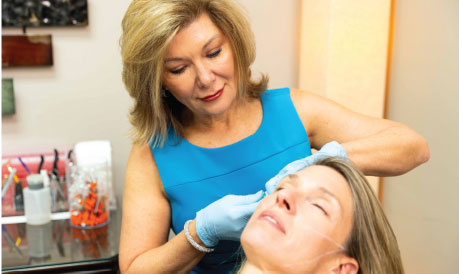Did the title of this article catch your eye? If so, you are no doubt wondering what this medicine could be and what can happen to older adults who take it. (If you are a Baby Boomer, you’re probably also wondering, “Hey, just how old is an ‘older’ adult?”)! You’ll have all the answers by the time you finish reading. But first, see if you can guess this “should avoid” medicine based on these clues:
- It is a popular non-prescription drug that is probably in your home medicine cabinet right now.
- It is commonly used to calm allergic reactions and reduce the symptoms of hay fever and hives (hives, itchy or watery eyes, runny nose, and sneezing).
- One of its most popular uses is “off-label”—meaning it used in a way the manufacturer never intended: to treat insomnia. But for many older adults, it’s the medicine they take every night at bedtime to ensure a good night’s sleep.
- Although you can find this over-the-counter medicine at any drugstore in America, in New Zealand, it is a “pharmacist-only” medicine. That means it is stored behind the pharmacy counter and must be purchased directly from a pharmacist. It is sold this way because pharmacists there are required to educate consumers about its safe and correct use and ensure they will use it for its intended purpose.
Have you guessed the medicine yet?
No? Then maybe you will be as surprised as I was to learn that this medicine is… Benedryl! More precisely, the offending substance that older adults should avoid is Benedryl’s main ingredient, diphenhydramine.
In older adults (defined as adults over age 65), diphenhydramine can cause serious side effects. Unfortunately, few senior adults (and, sad to say, not even all physicians) are aware of the problems that may arise when older adults take diphenhydramine. This lack of awareness is a bit surprising since many products that contain diphenhydramine appear on the Cleveland Clinic’s “Top Over-the-Counter Drugs Older Adults Should Avoid” list. That list includes not only Benedryl, but also the popular “PM” drugs (Excedrin PM, Tylenol PM, Bayer PM), and sleep aids such as Unisom Sleepgels and Sominex Maximum Strength. It’s worth noting that even though ZzzQuil, Nyquil, Aleve PM, and Anacin PM don’t appear on the list, they also contain diphenhydramine.
One reason for the concern about diphenhydramine is that in older adults it has a longer “half-life” (the amount of time it takes the body to eliminate the drug). It takes an older person about twice as long to eliminate this particular drug compared to a younger person whose body metabolizes it more quickly. This lag can create big problems for older adults who take a diphenhydramine-containing drug as sleep inducer. While the medicine may, in fact, produce a good night’s sleep, there may be a price to pay the next morning. An older person may awake feeling groggy or “hung over,” have delayed reaction time, feel dizzy, and experience loss of motor coordination and balance. All of these side effects increase the risk of falls, especially for people who already have a physical disability, a foot problem, or a balance problem. This increased risk for falling is concerning because falls are the number one cause of injuries and death among older adults.
According to sleepaidguide.com, other side effects of diphenhydramine include:
- Increased heart rate
- Flushing
- Blurred vision
- Irregular breathing
- Delirium
- Constipation
- Urinary retention
- Dry mouth and throat
- Irritability
- Cold hands or feet
Diphenhydramine can also interact with certain prescription drugs and with alcohol.
The most worrisome problem of all, however, is diphenhydramine’s impact on memory. This drug interacts with acetylcholine, a signaling chemical in the brain that is very important for short-term memory and attention. In an interview with the online magazine, UNC Health Talk, Dan Kaufer, MD, a neurologist and director of the UNC Memory Disorders Program, said that taking diphenhydramine over a long period of time can predispose a person to dementia. He said, “Exposure to diphenhydramine over the short term can make older folks a little squirrely, but long-term use over many years may lead to Alzheimer’s disease.” He advises, “You should be careful not to use these types of medicines all the time in order to get good sleep. …If people are unable to achieve a good night’s sleep, they really need to consult with a physician.”1According to Dr. Kaufer, a natural product such as melatonin is a safer sleep aid choice for older adults.
A final caveat: if you are over the age of 65, or if you purchase medicines for an older adult, become a label reader. If you discover that an over-the-counter allergy medicine or sleep aid contains diphenhydramine, if at all possible, choose a different product.
- “How Over-the-Counter Sleep Aids Can Hurt Your Brain,” UNC healthcare.org, January 24, 2018.






















